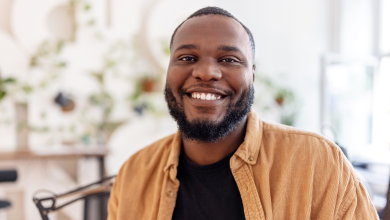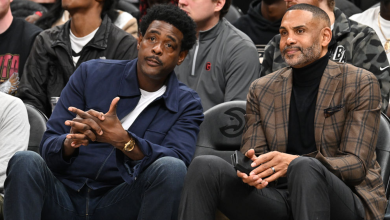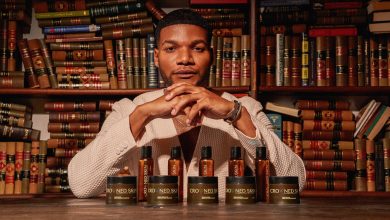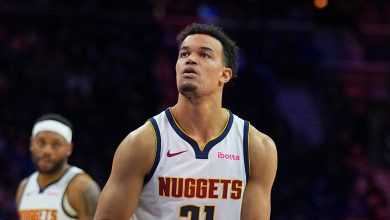This HBCU Graduate Built A Brain-Controlled Tech Prototype And Won Big
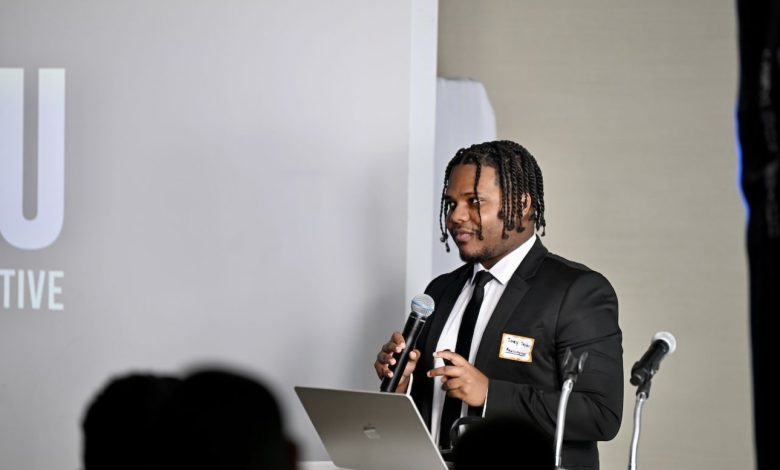

Joey Taylor, a 2024 graduate of Oakwood University, an HBCU in Huntsville, Alabama, recently won first place and a $15,000 prize at the HBCU Founders Initiative’s (HBCUFI) 2025 Better Futures Competition for his groundbreaking brain-computer interface, Mycelium.
Launched in 2021 by Nex Cubed, HBCUFI is dedicated to closing the wealth gap by helping HBCU students and alumni launch tech-driven ventures. Since starting the Better Futures Competition in 2023, HBCUFI has awarded more than $75,000 to 11 founders, according to data the organization shared with AFROTECH™.
Taylor’s win was the culmination of a journey that began with limited access to technology in Costa Rica, where he built his first computer from recycled parts. Today, his work bridges neuroscience, AI and innovation.
Building Confidence Through Opportunity
Before launching Mycelium, Taylor built an impressive resume as a freelance data engineer and worked in research labs. But it was his time at NASA, where he began working at just 18, that changed his path.
“I got recruited immediately, and the investment that strangers were making in me gave me a confidence boost that I’d never had before,” Taylor told AFROTECH™.
Much of his early encouragement came from his parents. “Of course, you appreciate it,” Taylor notes, “but sometimes you think that’s just their job. It felt really motivating and encouraging to get these words of motivation from these older people that were working for the government for all these years and didn’t really know me,” he continued.
That confidence fueled his entrepreneurial drive. Taylor became a repeat participant in HBCUFI programs, testing ideas across AI, gaming and food technology. But it was Mycelium that became the breakthrough. By capturing the brain’s electromagnetic activity with nodes and magnets, converting signals into machine code and simulating controller inputs, his prototype opens doors to new ways of interacting with technology.
A High-Stakes Win
For HBCUFI’s 2025 Better Futures Competition, Taylor was among five other finalists hoping to win a share of the $25,000 prize. The event drew a full audience of investors, tech professionals and HBCU alumni, all there to watch founders pitch innovations aimed at solving pressing challenges.
“In my head I was like, ‘Lord Jesus, please let me at least get third place,’” he said. “When second place was called and it wasn’t me, I thought, ‘If I don’t get this money, it’s going to be really bad.’”
The victory gave Mycelium room to breathe, as Taylor was announced as the winner and took home $15,000. When asked what he plans to do with the funding, he explained that it will cover critical expenses, such as business taxes, patents and costly hardware needed to refine the system.
“People sometimes forget that when you start a business, regardless of if you’re profitable or not or if you’re only in the prototype stage, you still incur taxes,” he told AFROTECH™.
“And if those aren’t paid, your company is gone. Beyond that, the funding will also help with patents, copyright, and essential computer parts that cost more money than I have.”
Inspiring The Next Generation
Beyond the tech, Taylor is deeply committed to representation. He often visits schools in Alabama and Georgia, showing up in his NASA lab coat to inspire students.
“The reason I do it is because…I didn’t have representation of someone who was Black, let alone Costa Rican doing physics or engineering,” he explained.
“Most of the time, it’s not people of color. And in mathematics, you rarely see someone of color. That’s why movies like ‘Hidden Figures’ was really cool when it came out. It was the only movie I could name that has Black people doing math. And not just Black people, but Black women too,” Taylor added.
Taylor also shared a guiding principle he lives by: “My No. 1 piece of advice is to stop overthinking. I’ve realized that some of the smartest people I’ve met tend to undermine themselves the most. To do something great, you have to be willing to do something horribly first. You can’t be amazing if you didn’t start off as ‘trash.’ You have to practice messing up intentionally to get good at it,” he shared.
“If you can take the uncomfortableness of failure and still take the motivation of success, that’s the best combination of characteristics you can have to win,” he continued.
He also told AFROTECH™ that he sees HBCUs as central to the future of innovation.
“As time goes on, the world is starting to realize the value of HBCUs, especially compared with Ivy League schools,” he said.
“The students they produce are just as capable. Upper-tier HBCUs, in particular, have the potential to be the launching pad for many Black-founded companies — much like Harvard or Yale have been for ventures like Facebook. HBCUs with the most amounts of funding can definitely be the origin story for future top 500 companies. More black founders should invest into HBCUs as well,” he shared with AFROTECH™.
